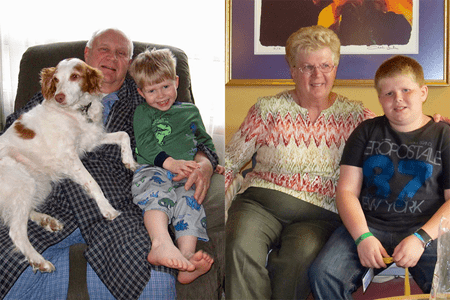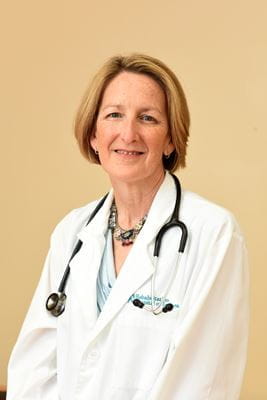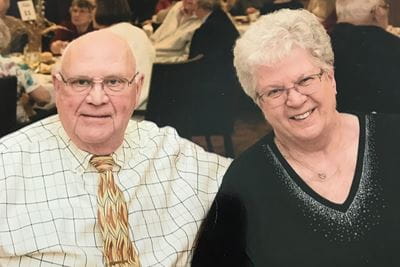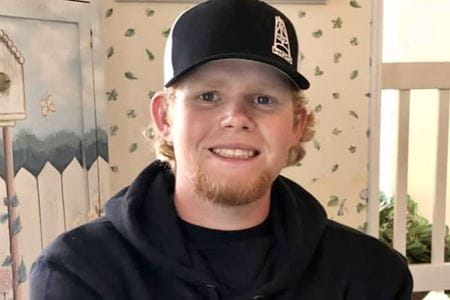Parker Schroll was 19 and had just begun exploring the possibilities of life and finding his way in the world. He was smart but easily bored with school. He’d rather put his energy into working with his hands. He dreamed of being independent and had begun working in construction. He had a smile that would light up a room, his family said, and a sense of humor to go with it.
“He was extremely loyal to those he loved and respected,” said his grandma, Denice Schroll. “He was creative, witty, thoughtful and loving.”
“He could think, process and analyze—he would be successful wherever he went and in whatever he did,” added his grandpa, Clem Schroll. “I don’t know what he would’ve ended up doing, but we were looking forward to an adventure.”
 Dealing with the loss of a family member is something you never get over. Parker suffered a traumatic brain injury (TBI) from a traffic accident on April 6, 2021, and died about a month later on May 4. The Schrolls want something good to come from their family’s tragedy.
Dealing with the loss of a family member is something you never get over. Parker suffered a traumatic brain injury (TBI) from a traffic accident on April 6, 2021, and died about a month later on May 4. The Schrolls want something good to come from their family’s tragedy.
While they were still at Parker’s bedside in IU Health Methodist Hospital, they determined they wanted to honor his memory by supporting research, education and clinical care in TBI. The couple recently established the Parker Joseph Schroll Traumatic Brain Injury Fund to support the work of Flora Hammond, MD, an expert in the field of TBI rehabilitation and recovery, and her team in the Department of Physical Medicine and Rehabilitation at Indiana University School of Medicine.
“We are fortunate to have the support of the Parker Fund to further our extensive research and education aimed at improving care, communication, rehabilitation and knowledge about recovery outcomes from traumatic brain injuries,” Hammond said.
Diehard Purdue Boilermaker fans, the Schrolls never would have anticipated giving to an IU fund, but that’s where they discovered outstanding work happening in TBI. After meeting Hammond, they knew IU School of Medicine was the right place for their charitable contributions.
 Hammond leads Indiana’s TBI Model System and chairs the executive committee of TBI Model Systems nationwide, leading the largest longitudinal study of TBI outcomes in the world.
Hammond leads Indiana’s TBI Model System and chairs the executive committee of TBI Model Systems nationwide, leading the largest longitudinal study of TBI outcomes in the world.
“In life, you evolve,” Denice said. “Five years ago, we would’ve never done this. You change, you grow, and you find out what’s really important. TBI is something that is really important to us.”
Remembering the tumultuous month between Parker’s accident and his death is hard for the Schrolls. There was a lot of confusion among family members about Parker’s status, and his grandparents were trying to better understand what was going on medically.
“We’re just grandma and grandpa who had a disaster, and we’re trying to get through it the best we know how,” Clem said.
Hammond knows the initial days after brain injury are stressful for families who are suddenly catapulted into tragedy. Her team is researching TBI outcomes and working on communication models that would help care providers engage in data-informed conversations with families.
“Outcome is uncertain in the first weeks to months after a brain injury,” Hammond said. “This uncertainty makes it really hard for families and physicians to make important decisions that demand certainty. The Parker Joseph Schroll Fund is supporting our work focused on helping families and medical teams navigate uncertainty using the information we do know about potential TBI outcomes and rehabilitation. Through our research, we are learning about the varied experiences of people living with brain injury and how to better communicate these findings during patient care.”
 While Parker couldn’t be saved, the Schrolls want to contribute to helping others who experience brain injury.
While Parker couldn’t be saved, the Schrolls want to contribute to helping others who experience brain injury.
“We can contribute to hope and let the professionals chase their dreams to come up with things to help the people who can be helped,” Clem said.
The Schrolls want to inspire other families to make contributions to medical research, whether that’s to the Parker Schroll Fund or a fund of their own choosing.
“You can contribute to all of the good things IU School of Medicine is doing,” Clem said. “Let’s put our donations someplace that will help doctors, physical therapists and others come up with answers.”
